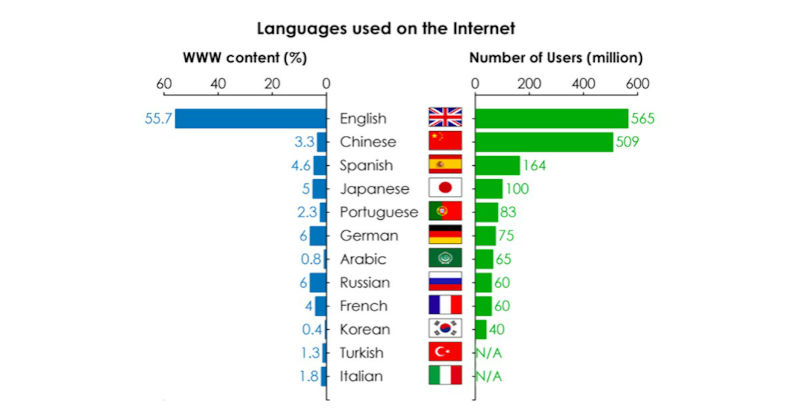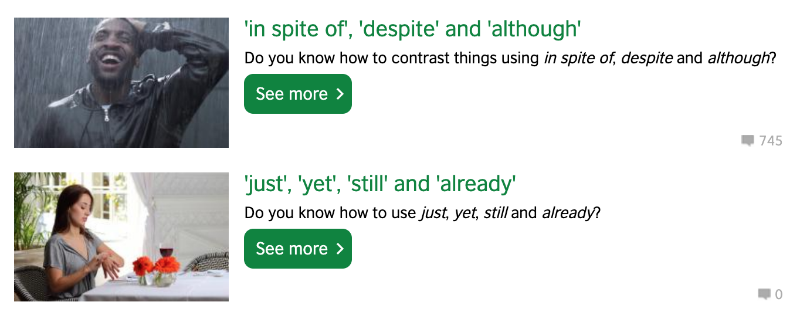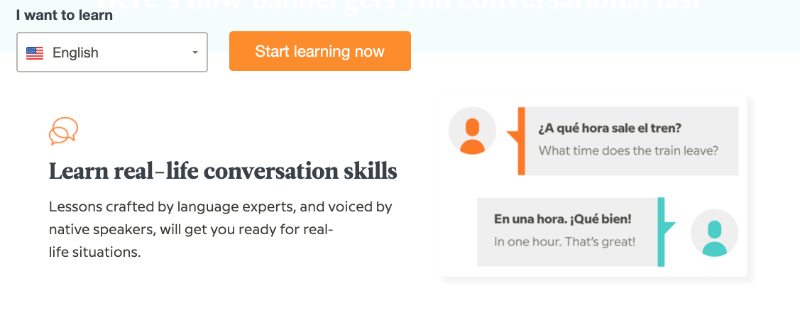7 useful sites and applications for learning English

An interesting fact - at least at some level, 20% of the population of the planet speaks English, and its speakers are only 5% of the population. At the same time, this language is perhaps the main one on the Internet. According to statistics, 55.5% of all posted online content is written on it.
So in order to have access to a huge amount of information, you need to learn English. Personally, it is always difficult to fight procrastination, and in summer it is even harder to do. There is not enough willpower for full-fledged studies, however there are applications and websites where you can learn words and grammar in a lighter mode. I found an article with a selection of such resources and prepared its adapted translation.
')
Useful sites
To get started, let's take a look at the sites on which materials are presented for studying, various cards, tests and other resources useful for learning a language.
Grammar monster

Despite the rather “old school” design, Grammar Monster is a very useful site, which contains an incredible amount of materials for studying grammar, punctuation, vocabulary. In the lazy summer time, especially collections come in, such as the enumeration of words, the meanings of which are often confused, as well as tests.
British Council

The site of the British Council for many years is one of the main resources for language learners around the world. This site contains lessons, analyzes of various difficult grammatical topics, there is a glossary, and what is important - specialized games that make learning more enjoyable.
Another important point is that the library of materials on the site is so huge that people with very different levels of proficiency will find useful content for themselves here.
Activities for ESL Students

Another site with a mildly obscure design, but extremely useful content. Here collected a huge number of polls, tests, puzzles for learning English. What is important - the materials are selected specifically for people who are not native speakers of English (English as a second language, ESL). In addition, much of the content is presented in different languages.
Applications
Sites are good, but one thing is just to read the materials presented on the web, and quite another to use different applications to learn the language. Below is a small list of such tools.
Cram

Very popular in the English-language Internet resource. Training in this application is using flashcards. The vocabulary is divided into different topics, plus users can create their own sets of cards and share them with friends or, for example, other students in the classroom.
The basis of the teaching method applied here is the Leitner system . It is quite widely used, including in educational institutions, so Cram is often used by English teachers.
Babbel

An application for learning different languages, but among others there is English. Here, training is based on passing the quizzes. The system provides courses for students with different levels of training.
Plus the application is that the lessons are structured in such a way that it takes no more than 10-15 minutes to complete them. You can do exercises to improve your writing, reading, listening, and even pronunciation or vocabulary.
MosaLingua

This application is specially designed for people who want (or who need) to learn English, but there is almost no time for classes. The project team developed and patented its own learning method aimed at memorizing words, phrases and expressions quickly - all in order to start using the language in real life as quickly as possible.
Perfect, for example, if you need to go on a business trip or on vacation, and want to quickly tighten vocabulary on a particular topic.
Linguix

This application was originally needed to correct errors in written English, but over time it has more educational functions. Firstly, if you use written English and install a browser extension for yourself, it will remind you of errors over and over again - in the end you will remember the correct spelling of words.
Secondly, in the web version of the system there is a module for assessing the “readability” of texts, its regular use helps to understand how to write so that your thought can be normally perceived by people with different levels of education. Also, students often write essays and essays - and there are more than a dozen different templates of such texts in the system.
And what useful applications for learning languages do you know?
Source: https://habr.com/ru/post/460413/
All Articles